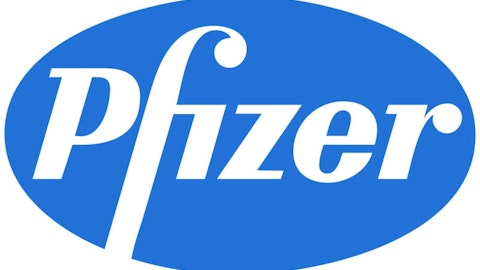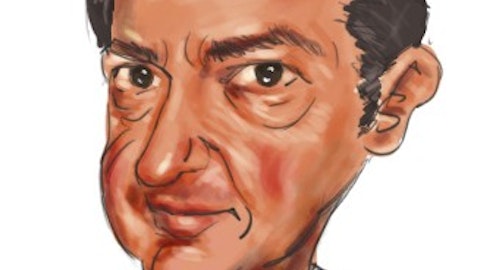Visium Asset Management was founded by Jacob Gottlieb in 2005. Though this hedge fund initially specialized in health care stocks, the firm now manages over $3.5 billion in its broader range of holdings. Industrials, utilities, financials, energy, credit, special situations, risk arbitrage, convertible bond arbitrage, and macro and quantitative investments are the key investment interests of Visium. Gottlieb graduated magna cum laude from Brown University before receiving his medical doctorate (MD) degree from New York University Medical School. In 2001, Gottlieb received his CFA charter from AIMR.
The following reviews the top holdings of Visium according to its most recent 13F regulatory filing. As was the case with its initial objectives, Visium presently holds a large number of health care stocks. Its top four equity long positions occupy more than 4 percent of the fund’s 13F portfolio each.
CVS
Topping the list is CVS Caremark Corporation (NYSE:CVS), which both operates retail pharmacies and serves as one of the largest pharmacy benefit management (PBM) services in the United States. This company is one of the largest sellers of generics in the United States and markets their use on the company’s website. Shares are trading at 13 times forward earnings, and the company has consistently outperformed its major competition, particularly Rite Aid Corporation (NYSE:RAD), whose shares have been in an extensive slump for the past three years. Particularly, while CVS Caremark Corporation maintains a margin of 3.1 percent, Rite Aid Corporation has reported negative earnings for the past three years, losing $0.43 per share last year. S&P estimates that sales will rise about 15 percent in 2012 to $123.5 billion, and the stores themselves will see a 4.7 percent comp growth. In all, CVS is both well-priced and positioned to take advantage of growth opportunities.
Endo Health Solutions
Endo Health Solutions Inc (NASDAQ:ENDP) maintains a portfolio of both branded and generic pharmaceuticals. About 61 percent of revenue in 2011 was derived from branded pharmaceuticals, 21 percent from unbranded pharmaceuticals, and 11 percent from the device segment. Price-sales ratio for the stock lies at 1.3, which is low for the pharmaceuticals sector. The company is heavily leveraged with a total debt-to-equity ratio of 169 percent. Second quarter earnings exceeded analysts’ expectations, coming in at $1.27 per share versus the anticipated $1.19 per share. The company’s acquisition of a urology segment has added to its overall diversification, and it anticipates releasing a generic form of Lidoderm in September 2013.
Watson Pharmaceuticals
Watson Pharmaceuticals Inc. (NYSE:WPI) is another company engaged in the worldwide marketing and sale of generic drugs, focusing on generics, branded drugs, and distribution. Shares are trading at 14 times 2012 estimated earnings, and enterprise value/revenue for the company is at 2.2. Perrigo Company (NASDAQ:PRGO) is more expensive in respect to both of these metrics and to price/sales, though Watson Pharmaceuticals has a consensus projected 5-year growth rate that is lower than Perrigo Company and many of its peers.
Teva Pharmaceuticals
Like the previous two companies, Teva Pharmaceutical Industries Ltd (NYSE:TEVA) is a global generic pharmaceutical company. The world’s largest supplier of generic pharmaceuticals, Teva operates in 60 countries and owns 40 different finished dosage manufacturing sites. Its forward P/E of 7 is below that of Watson Pharmaceuticals but above that of Endo Health Solutions. Teva maintains an A- credit rating and has a lean cost structure. With its significantly larger scale—larger than Perrigo, Watson, and Endo—Teva is perhaps best positioned to benefit from the increase in global demand in generics.
Generic pharmaceuticals, in general, are less burdened with patent expirations than their name-brand, big-pharma counterparts. Though there is likely to be some top-line pressure through this economic cycle, we expect generics—especially those that are “first-to-file” after a patent expiration, thereby securing 180 days of marketing exclusivity—to compete favorably with name-brand pharmaceuticals as an investment option.






